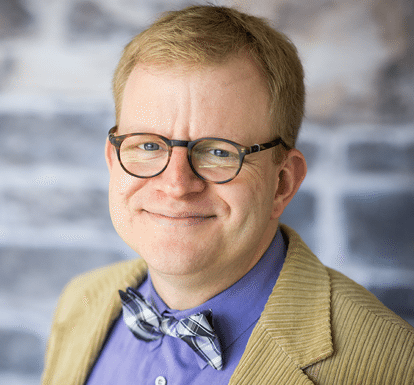Teacher Burnout Crisis: Addressing Compassion Fatigue and the impact of Praxis Shock

By Heidi Happonen
The transition from training to be a teacher to teaching in the classroom is proving overwhelming for many new educators, with a staggering 50% leaving the profession within the first 3-5 years. According to recent surveys by the National Education Association (NEA), 90% of teachers consider burnout to be a serious problem. That burnout is exacerbated by the challenges of a post-pandemic world where many classrooms have become quasi-therapy groups, a role for which teachers are not trained.
In response, the Massachusetts Department of Elementary and Secondary Education has developed “Promising Practices” which serves as a curation of the best training recommendations from educational leaders across the state. Two Northeastern professors recently had their work included in this resource, specifically for their work aligning teacher prep with behavioral health programs.

Jennifer Madonna, a Professor at Northeastern’s College of Professional Studies and the Director of Licensure and Field Placement and Educator Preparation Licensure Officer collaborated with William Sharp from the College of Science in response to the fact that many educators expressed feelings of isolation in their struggles managing the emotional burden of managing mental and behavioral health issues in their classrooms. Naming the need for teacher preparation programs to incorporate behavioral health training, they acknowledged the quiet truth many teachers face as they are often expected to act as therapists without the necessary support. Their partnership began as part of Madonna’s dissertation “Preparing Teachers for Praxis Shock Through Pre-Service Teacher Preparation Programs.”
“Praxis shock” refers to the feeling of surprise or disillusionment that a new professional experiences when the reality of their work environment significantly differs from their initial expectations, particularly when transitioning from theory to practice. It is most commonly seen in early-career teachers encountering the challenges of a classroom setting for the first time as a gap between idealized notions of the job and the actual demands and complexities faced on the ground collide. Other professions that commonly encounter praxis shock include health care workers and first responders.

In working on aligning teacher prep with behavioral health programs, it became evident to both Madonna and Sharp that the U.S. is falling behind other countries in teacher preparation. Other countries like the UK provide hotlines for teachers needing support, a practice not widely adopted in the US. To combat this, Madonna and Sharp began quarterly seminars with teachers, normalizing discussions about the compassion fatigue that comes with teaching.
When they first started, and publicly named the challenges faced by teachers who were unprepared for the realities of the classroom, many teachers felt seen for the first time.
“We had people in seminars stop us just to sit in a moment of having their struggles not only be recognized but acknowledged as widely shared with their peers. They knew then that they were not alone,” Madonna said.
Reflective practices, alumni talks, and a focus on setting boundaries and understanding emotions built in these seminars are now integral parts of the program and core to the recommendations now published in the Promising Practices guidebook for teachers. These efforts aim to reduce burnout and attrition, creating a more supportive environment for new teachers.
As more people are made aware of the unique challenges facing educators in the classroom, it is the hope of Madonna and others that more teachers will be equipped not only to teach but also to manage the emotional demands of the profession before they step foot in the classroom.




